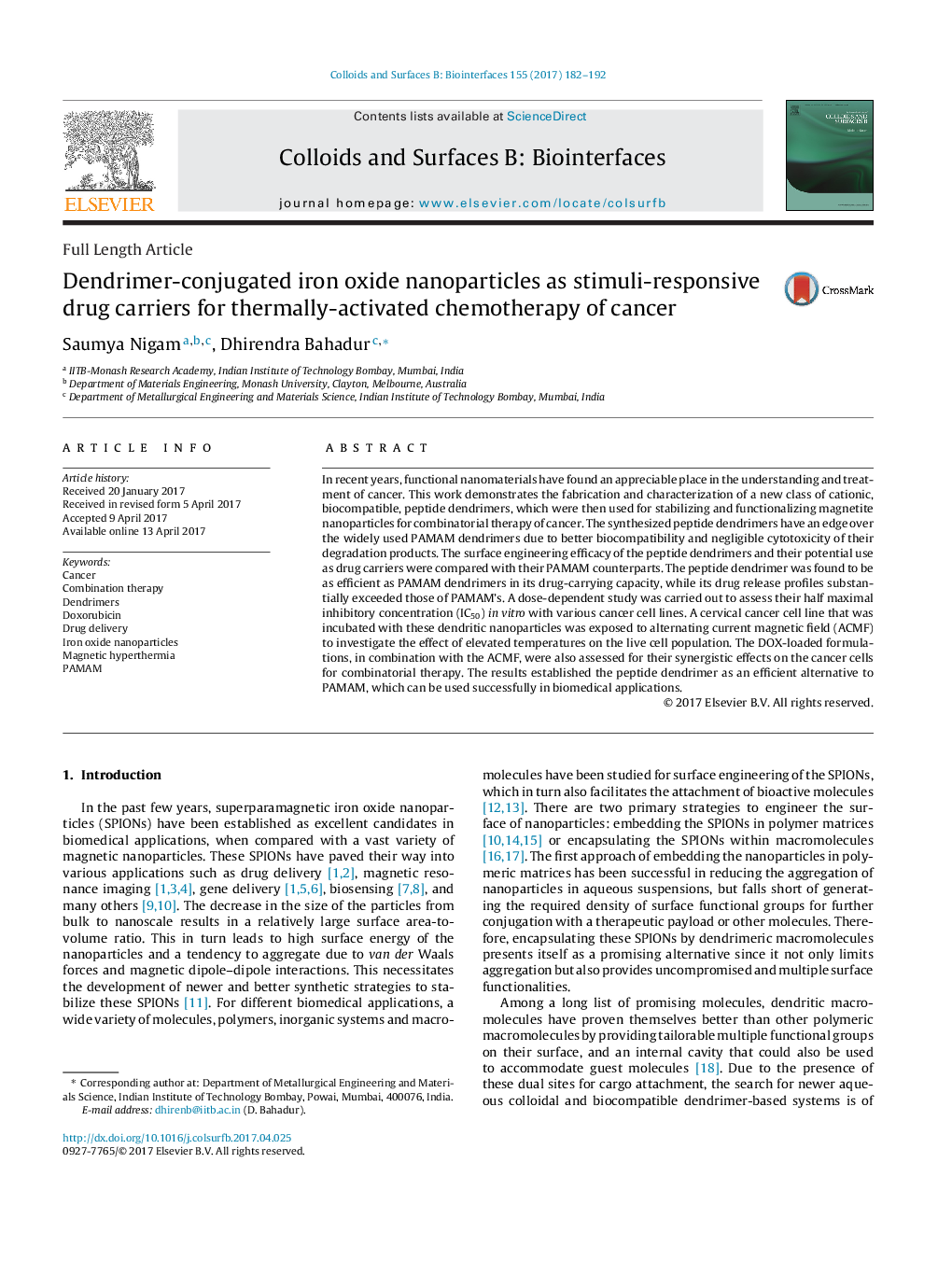| کد مقاله | کد نشریه | سال انتشار | مقاله انگلیسی | نسخه تمام متن |
|---|---|---|---|---|
| 4983094 | 1454249 | 2017 | 11 صفحه PDF | دانلود رایگان |
- Synthesis and elaborate characterization of cationic, biocompatible, peptide based dendrimer.
- Its ability to conjugate with iron oxide nanoparticles was thoroughly evaluated.
- This dendrimer-Fe3O4 was evaluated against PAMAM-Fe3O4 as delivery vectors and for combinatorial cancer therapeutics.
- As-prepared peptide dendrimer surpassed PAMAM-based nanosystem for delivery of doxorubicin to cancer cells.
- The as-prepared dendritic system also showed precise and enhanced combinatorial cancer therapy.
In recent years, functional nanomaterials have found an appreciable place in the understanding and treatment of cancer. This work demonstrates the fabrication and characterization of a new class of cationic, biocompatible, peptide dendrimers, which were then used for stabilizing and functionalizing magnetite nanoparticles for combinatorial therapy of cancer. The synthesized peptide dendrimers have an edge over the widely used PAMAM dendrimers due to better biocompatibility and negligible cytotoxicity of their degradation products. The surface engineering efficacy of the peptide dendrimers and their potential use as drug carriers were compared with their PAMAM counterparts. The peptide dendrimer was found to be as efficient as PAMAM dendrimers in its drug-carrying capacity, while its drug release profiles substantially exceeded those of PAMAM's. A dose-dependent study was carried out to assess their half maximal inhibitory concentration (IC50) in vitro with various cancer cell lines. A cervical cancer cell line that was incubated with these dendritic nanoparticles was exposed to alternating current magnetic field (ACMF) to investigate the effect of elevated temperatures on the live cell population. The DOX-loaded formulations, in combination with the ACMF, were also assessed for their synergistic effects on the cancer cells for combinatorial therapy. The results established the peptide dendrimer as an efficient alternative to PAMAM, which can be used successfully in biomedical applications.
112
Journal: Colloids and Surfaces B: Biointerfaces - Volume 155, 1 July 2017, Pages 182-192
